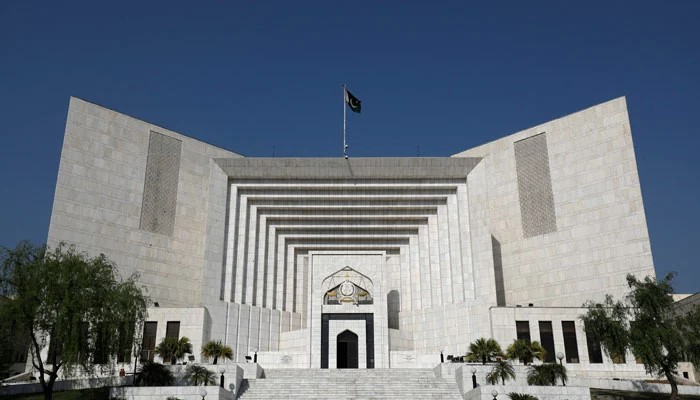On Tuesday, the Supreme Court reserved its ruling on a series of appeals by the Sunni Ittehad Council (SIC) against the Peshawar High Court (PHC) and the Election Commission of Pakistan (ECP) for denying reserved seats for women and non-Muslims to SIC.
The full court, led by Chief Justice of Pakistan (CJP) Qazi Faez Isa, concluded the proceedings, though Justice Munib Akhtar hinted at the possibility of announcing the decision on the same day. CJP Isa noted that the court’s order might be lengthy and, as the judges still needed to deliberate, the judgement was reserved.
Previously, on May 6, a smaller bench had suspended the PHC verdict and the ECP decision that deprived SIC of seats reserved for women and minorities. Consequently, the ECP on May 13 suspended the notifications of 77 returned candidates on reserved seats in the assemblies.
During Tuesday’s hearing, Justice Athar Minallah remarked that the Constitution is based on the principle of self-governance, with the right to vote being its most crucial element. He questioned why the ECP was reluctant to demonstrate its commitment to holding fair elections and expressed concern that voters who supported a major party were being excluded from the political process, framing it as a matter of fundamental rights.
Justice Waheed observed that while the government and its institutions were previously considered bona fide litigants, the ECP was now behaving like an ordinary litigant. Senior counsel Faisal Siddiqui, representing SIC, argued that the ECP had failed to fulfill its constitutional mandate and acted in a discriminatory manner.
Siddiqui presented the 2019 election tabulation from the Khyber Pakhtunkhwa assembly post-FATA merger, noting that three independents had joined the Balochistan Awami Party (BAP) and secured one reserved seat. He accused the ECP of dishonesty, as it later described this decision as per-incurium (lack of care). He contended that there was no legal requirement for submitting a schedule for the list of candidates for reserved seats before the election under Section 140 of the Elections Act, 2017, and Article 51 of the Constitution.
Justice Irfan Saadat Khan pointed out that the SIC’s case differed from that of the BAP, as the SIC gained a bonus without participating in the election. The CJP questioned whether the Supreme Court was bound by the ECP’s interpretation of the law and if the counsel wanted the court to consider this interpretation as binding.
The counsel argued that the ECP’s conduct during the elections was arbitrary and that the court should intervene in cases of “constitutional hypocrisy” by the commission. He cited the example of the JUI-F, which had a similar provision but was granted the minority reserved seat by the ECP.
During the hearing, Justice Syed Hasan Azhar Rizvi inquired if the Constitution allowed the allocation of remaining reserved seats to other parties in Parliament. The counsel responded that it could not be done and emphasized that the court should not allow a “minority government to be turned into a majority government.”
Later, Salman Akram Raja, representing PTI leader Kanwal Shozab, argued that denying reserved seats would lead to unrepresentative assemblies in KP and Punjab. He criticized the ECP for being incomplete and unreliable in presenting records to the court and accused the ECP of acting as adversaries rather than upholding the will of the people. Raja claimed that independent candidates had no choice but to join SIC, as rejoining PTI was not an option, thus invoking Article 51(d) of the Constitution.




